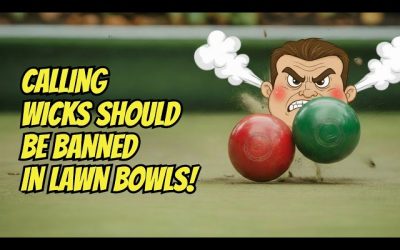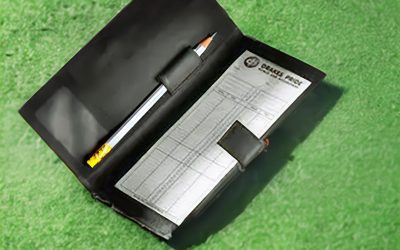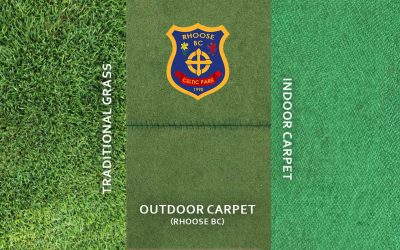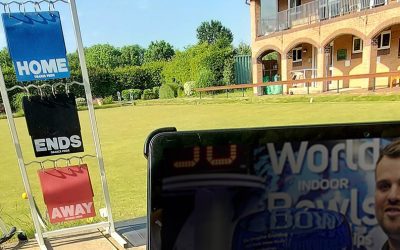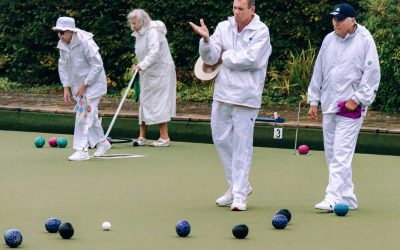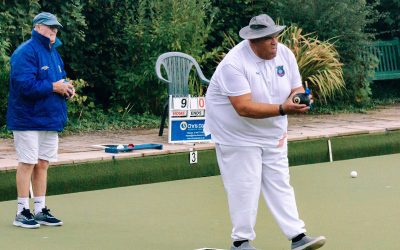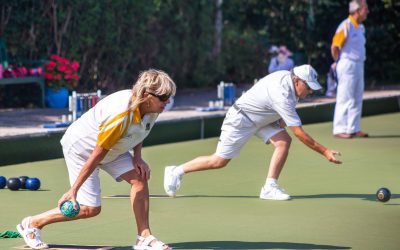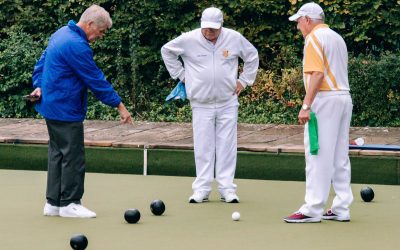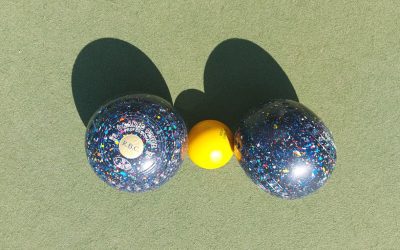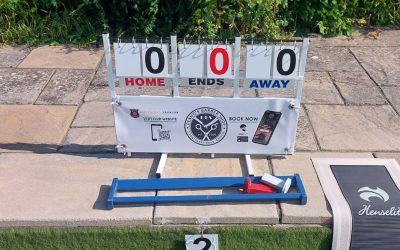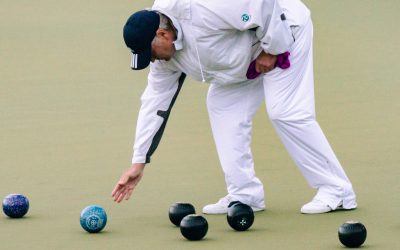Playing in a team, or as a rink:
When you begin playing in a rink of 4 players, even socially for fun or representing the club in a fixture it is always good to know what your role is within the team.
Obviously, playing socially is different to playing competitively and the formality of competitive play is slightly different to playing for fun, but the roles do stay the same.
What is written below may sound like strict and rigid roles, but in any sport each team member has a slightly different responsibility. In football, for example, a goalkeeper, defender, captain and striker all have one objective, but different roles.
Player Roles in a team/Rink of 4 players in Bowls
Lead – Second – Third – Skip
What is my role as a lead?
Duty: The lead of the team to play first in an end should;
- Place the mat as directed by the skip,
- Deliver the jack to a legal length, as directed by the skip, and make sure that it is centred before delivering the first bowl of the end,
- Help to return bowls to a safe position behind the mat at the conclusion of each end. If their team won the end the focus should be more on locating the jack, grabbing the mat and setting up for the next end, with less time tidying bowls than the opposition lead.
- A lead should not be involved in the ‘shot count’, and leave that to the third. Whilst the third is deciding shots with their opposite number, the lead and second should stay well clear and be clearing non-counting bowls and getting ready for the next end. It is not helpful ‘hovering’ around a shot count.
Objective: Leads are required to draw their bowls as close to the jack as possible. That is obvious. Also, the idea is not to move the jack of centre or hit it but draw to it.
Gamesmanship: You should ignore what the opposition lead is doing and play your bowls to achieve your objective. That said, if you are playing on an away green, the opposition lead may know the best hand to play (in their opinion).
Mat & Jack Tactics: Tactics begin in trial ends; from the toss of the coin, the first placement position of the mat and playing length of the jack. It is therefore vital the lead watches the skip for instructions for the placement and delivery length. It is not the prerogative of the lead to move the mat around at will or vary the length of ends. The skip will often gesture if they want the mat ‘up’, ‘back’ or ‘on the T’.
Trial ends (in leagues and comps): During trial ends lawn bowls are played on the forehand and backhand to determine the best side to play. The best side (usually the narrow hand) is chosen and played. This hand is not changed unless instructed by the skip. Often, the skip will be less strict on their lead’s choice of ‘hand’, than the other team mates.
Wisdom: Wisdom suggests that the lead should always bowls on the same side of the rink as this obviates the necessity of having to cope with the varying width and pace of the green.
Self-Control: The requirement of leads is to deliver their bowls as close to the jack as possible. Unless specifically instructed by their skip; they should strictly avoid niggling at close opposition bowls, keep their mind clear and focused on their objective. Remember in a team effort, a good close second bowl is just as important as the shot bowl.

What is my role as a second?
General Duties: The second must be a versatile player for defence, attack or recovery with the ability to;
- Draw on either hand to the jack or to a position designated by the skip,
- Be able to play on-shots to trail the jack to designated lengths,
- Rest on or wrest out bowls from the head.
- When the lead has failed, re-establish the leads obligation at the head,
- Assist in moving the bowls back behind the mat at the conclusion of each end,
- A second should not be involved in the ‘shot count’, and leave that to the third. Whilst the third is deciding shots with their opposite number, the lead and second should stay well clear and be clearing non-counting bowls and getting ready for the next end. It is not helpful ‘hovering’ around a shot count.

What is my role as a third?
Harmony: It is essential the third works in complete harmony with the skip and members of the lawn bowls team.
Be in charge of the head when skips are bowling or in absent of the skip.
- Measure for shot and decide with the opponent the number of shots and signal the result to skip and the second,
- Help to return bowls to a safe position behind the mat at the conclusion of each end,
- Must know and be able to identify the teams and opponent’s bowls,
- Answer the skips queries correctly and concisely.
Experience & Ability: Apart from being experienced in all shots from the draw to the drive, they must also be able to quickly indicate the position of the head or bowls when asked for this information.
Control & Advice: The thirds should not attempt to control the skips play, but advise. A skip can decide to ignore their thirds advise, but often harmony prevails. Afterall, a skip carries the responsibilities of the rink, and weighs up the situation along with the thirds advice.
Other Attributes:
- Be able to determine the shot quickly when asked,
- Able to indicate the up or down position after the skips bowls comes to rest,
- Should always know who holds second and third shots,
- Must always be aware of the position of bowls in the head when it’s his turn to play,
- Must observe all shot measurements and where in doubt recheck the measurement,
- It is vital that the third has a thorough knowledge of the laws of the game, conditions of play and the etiquette of the game.
Etiquette The third should discourage any interruption by the lead or second when directing or measuring at the head.

What is my role as a skip?
Responsibility The skip carries the responsibilities and duties and therefore must be supported by the team.
To be in charge of the team, delegate duties and notify opponent when necessary,
- As applicable instruct the team members which shot to play,
- Make decisions with the opponent to comply with the laws the game and conditions of play,
- Ensure that the score card is returned to the second (if this rule is in place).
Strengths & Weaknesses It is imperative when building the head for the skip to know his players strengths and weaknesses and the bias dimensions of their bowls. Many skips are prone to call for a shot or shots based on their own ability and the track of their bowls.
The Accruing Score In league games the skip should be aware of the accruing score across all rinks, remembering that the team has a responsibility to the side and therefore should not adopt an overzealous attitude to the situation that will endanger the sides result.
Encouragement – The skip should endeavour not to display disappointment if a player performs a bad shot, but should always commend a player who plays a good shot. Try not to look worried in trying situations.
Qualities Expected Be in control of the team and process the following;
Communication Have good communication with the team by;
- Ensuring the team understands the game plan,
- Constructing the game plan (a good skip will work out the strengths and weaknesses of the opposition as the ends unfold and work with that knowledge),
- Ascertaining appropriate hand signals with the team,
- Being positive with instructions,
- Keeping directions short, simple and indicate correctly.
Tactics Being ingenious contrive and instigate tactical know how by;
- Knowing and being able to read the head,
- Knowing the strengths and weaknesses of the team,
- Ensuring you have control over mat placement and jack length,
- Knowing and employing the tactics of the game,
- Observing and where possible counter the tactical moves of the opposition.
Skills Improving your own ability to enable you when required to play;
- Any of the shots of the game e.g. draw shot, on-shots, running and drive shots.
Avoid Detract yourself from being the main distraction to your team;
- By raising your voice aggressively,
- Moving around at the head when a player is on the mat,
- Casting shade over the head.


